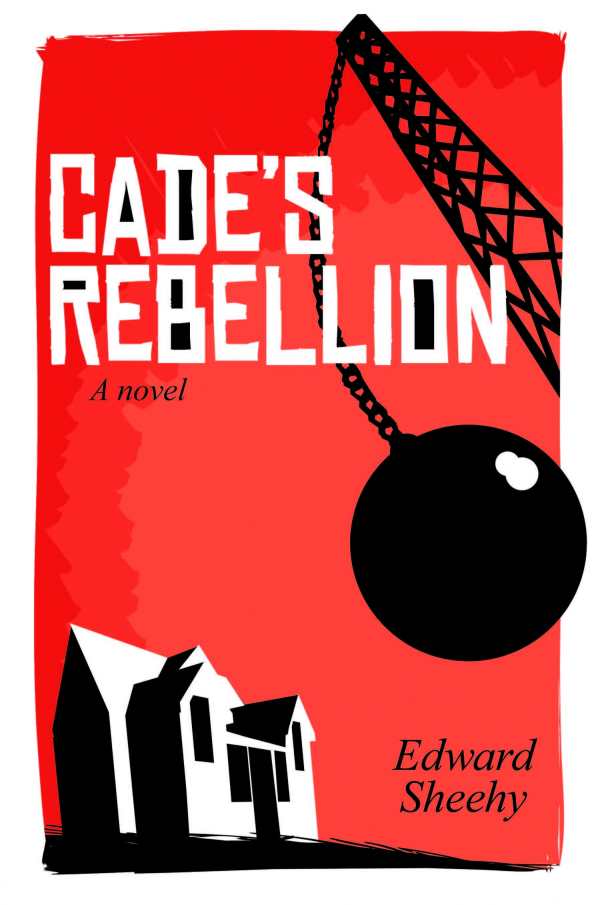
Cade's Rebellion
Intelligent and lingering, Sheehy’s book is a look at a different kind of life just inside the Washington Beltway.
Edward Sheehy’s Cade’s Rebellion is a smart, memorable story of clashing cultures.
Jack Cade, a veteran of the war in Iraq, ekes out a living in Arlington, Virginia, driving his own cab. At home, he enjoys the company of neighborhood friends and follows the local baseball team. When it appears that the five thousand residents of Glebe Valley Apartments where he lives—more than half of whom are from Central America—will be displaced to make way for urban development, Cade realizes he must organize one last mission to save his home.
A diverse cast of characters includes Cassandra, a psychic from Trinidad and Cade’s romantic interest; Cade’s friend Luis, who is hiding a terrible secret about his past; an energetic young priest; a somewhat sleazy up-and-coming real-estate developer; Rita, a legal-aid lawyer from Miami with uncertain motives; and a ruthless killer with a business degree who is trying to make a name for himself. These various lives connect and intersect. While Cade is the focus, considerable space is given to Luis and Rita as well.
A wealth of background information is included, including on Cade’s time in Iraq; those descriptions ably capture events with long-reaching impacts. Similarly, the novel addresses the 1980–1992 civil war in El Salvador; its aftermath haunts both Luis and Father Gustavo Romero. The land on which the apartments sit is also put into historical context. Combined, such elements make for intriguing reading.
Characterizations are nuanced. Cade is only occasionally a nice guy; he deals with PTSD and a lingering addiction to pain pills. While many of the characters whom Cade encounters exemplify the dark side of human nature, his core group of friends retain some innate goodness. Their lives are captured in a heartfelt way as they strive to live as best as they can, even when circumstances make it difficult.
The story follows a somewhat straight line, but as characters’ motives change, the action becomes more fluid and uncertain. Dialogue is authentic, and Cade’s inner responses are a hoot to follow as he wisely swallows words that he probably shouldn’t say aloud.
Information about the real-estate industry is succinctly delivered and flows into the story. The book’s themes are very current, as with its ICE (Immigration and Customs Enforcement) raids and a WASPy watchdog group of local wives who spy on “Pedro” at the local gas station.
While the outcome of their battle with the large real-estate conglomerate is not what the majority of the Glebe Valley residents envision, there is cause for hope. The book’s multiple story lines and characters satisfyingly merge, despite the loss of several key players. The final chapter takes place two months after the conclusion of the story and nicely ties up loose ends.
Intelligent and lingering, Sheehy’s book is a look at a different kind of life just inside the Washington Beltway.
Reviewed by
Robin Farrell Edmunds
Disclosure: This article is not an endorsement, but a review. The publisher of this book provided free copies of the book and paid a small fee to have their book reviewed by a professional reviewer. Foreword Reviews and Clarion Reviews make no guarantee that the publisher will receive a positive review. Foreword Magazine, Inc. is disclosing this in accordance with the Federal Trade Commission’s 16 CFR, Part 255.
